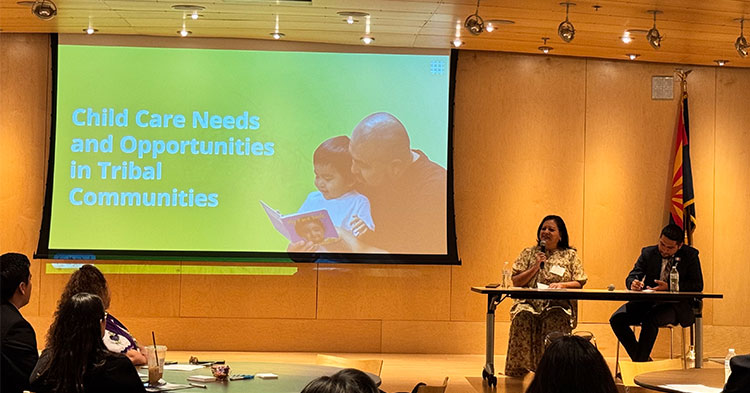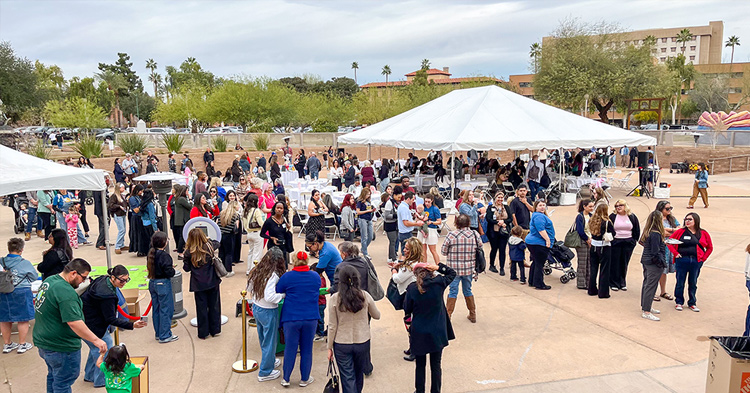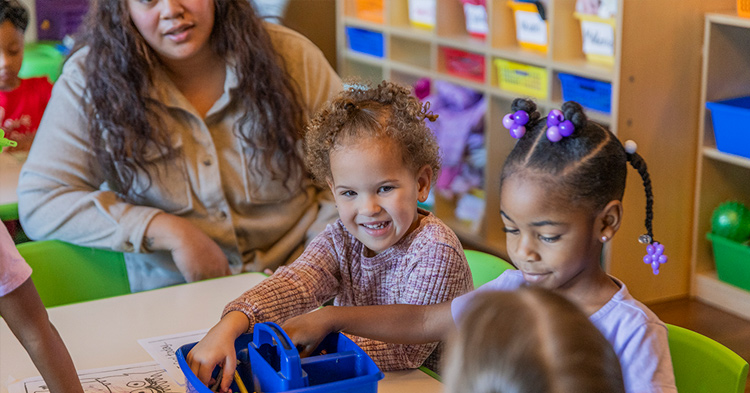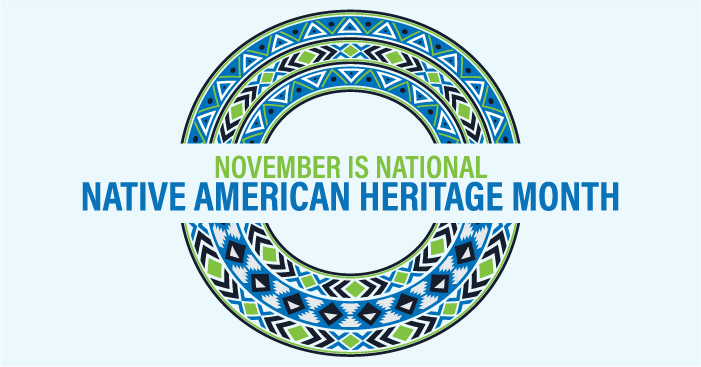
Tiburcia Yocupicio Chambers recalls conversations about creating an early learning center for the Pascua Yaqui Tribe community during First Things First’s (FTF) early years of existence. As the regional director of the FTF Pascua Yaqui Tribe Region, Yocupico Chambers said that for decades, the community expressed that Yaqui families need additional child care options.
Currently, regulated child care has been through licensed home providers in the community and the federally funded Head Start program, which serves a limited number of children ages 3 to 5. That will change in early 2026 with the addition of Itom Ili Tosapo Am Remtituane in Yaqui or Our Little Nest of Enlightenment Early Childhood Learning Center, which is expected to open on Pascua Yaqui tribal land. It will eventually serve over 100 children from birth to age 5 in the community, which has a total population of over 350 young children.
Example of systems-building approach
The center broke ground in January 2024 and represents years of planning for the tribe with a variety of partners, including FTF. It illustrates a systems-building approach that helps partners collaborate to get the best outcomes for all children.
“It’s been quite the journey,” said Rosie Gutierrez, child care program supervisor for the Pascua Yaqui Tribe. “It’s amazing that it’s finally here. We’ve worked on this for a long time.”
As FTF celebrates Native American Heritage Month in November, FTF will have free panel sessions throughout the month that explore how child care, like Our Little Nest of Enlightenment, is being established in tribal communities, how children thrive in quality interactions in child care settings and how tribal colleges are supporting early childhood.
Native American Heritage Month is an intentional, dedicated time each year where tribute is paid to the rich ancestry, traditions and contributions of Native Americans.
For the FTF Pascua Yaqui Tribe Regional Council, the conversations that led to the creation of the Our Little Nest of Enlightenment centered around how the agency could support the needs of families with young children, along with the early childhood community. The FTF Pascua Yaqui Tribe Region is defined by the borders of the Pascua Pueblo Reservation in Pima County. The region covers approximately 2.2 square miles.
FTF-funded a variety of strategies
Over the next decade, a variety of FTF strategies were implemented, such as funding college scholarships to grow the number of early childhood education professionals living in the community. Access to quality care came through Quality First scholarships made available to qualifying families in the region, along with support for Quality First participants on the reservation and in other areas of Pima County where Pascua Yaqui families could enroll their children.
In State Fiscal Years 2021-23, the FTF regional council opted to provide more direct support through the Capacity Building Strategy for a tribal staff position that would focus specifically on an early learning center project. In SFY24, the position was funded for an additional year through the Early Learning Systems Change Strategy.
“This person would focus on bringing together not only the child care program, but social services and other departments and programs to present proposals to the tribal council,” Yocupicio Chambers said. “Thomas Cupis came on board on the project and the idea was for him not only to bring together this advisory group, but also do research on grants to apply for and bring to the table the community voice. And later on, how we will sustain this.”
The FTF regional council also funded the Language, Literacy and Culture in Tribal Communities Strategy to support the work to create the Yaqui curriculum for the center, where a large part of the curriculum planning is to include a Yaqui-based education to the children, which will foster Yaqui identity and teach the Indigenous language and culture.
A colloquy of elders, child care providers, educators, community members, parents and tribal staff played a role in shaping the curriculum, Gutierrez said.
“There are so many moving parts from policies, curriculum, handbooks and partnering with parents and the community to carry out the vision,” she said. “We prayed for the center before the drywall went up and put prayers throughout the walls. It’s a blessing.”
Language revitalization will play a large role in the teachings.
“We want our children learning our language, culture, traditions and history,” Gutierrez said. “They’ve got to know they can grow strong and be able to succeed in school at all levels.”
Building the early learning center
As the planning took shape, the COVID-19 pandemic brought a skyrocketing increase in construction costs. Luckily, partial funding came from an unprecedented 2021 investment in the nation’s early care and education industry from the federal government. An infrastructure grant for almost half a million dollars through the pandemic relief funding allowed the tribe to buy furniture, technology and learning materials.
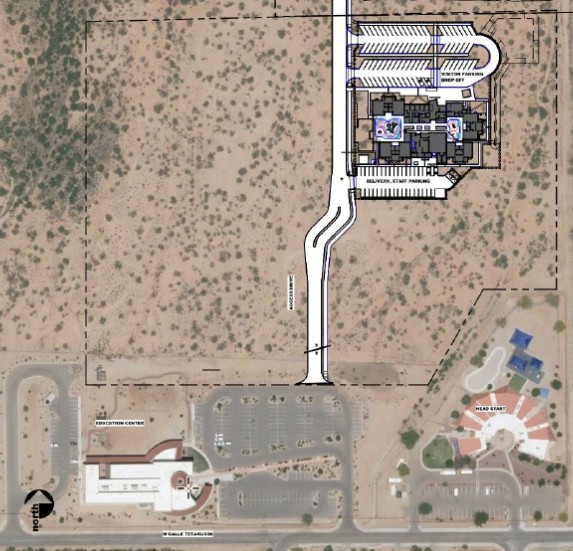
A variety of locations were considered throughout the years, but the tribe finally settled on a piece of land north of the current Head Start building. The center will open with the infant room, but includes plans to eventually build a pre-k to college system with campuses for each educational level.
Cupis, who now serves as the tribe’s treasurer, spoke earlier this year about the challenges of hiring staff for a new child care center. And how those applicants had struggled with their own lack of child care as they searched for jobs.
“We’re trying to hire staff and of the women applying for positions, around two-thirds had at least one point in their life where they had to step away from their jobs,” Cupis said. “I can see it in their applications and talking to mothers and families.”
The new child care facility is expected to provide opportunities to give tribal members new employment possibilities.
“We’ll be working to figure out those swing shifts and overnight shifts,” he said. The shifts with afternoon, evening and overnight hours are typically the most challenging for employees with children.
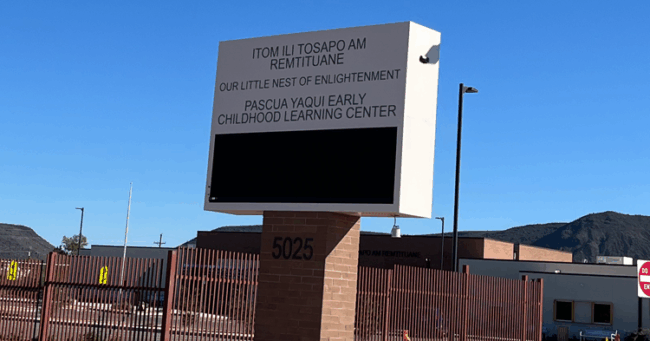
In addition, the tribe will be working on career and technical education programs to help grow the staff of the child care center, he said.
For Yocupicio Chambers, it’s been an honor for FTF to be included in the tribe’s planning and implementation conversations.
“Since the beginning, they opened the door to us, the regional council and invited me to the different meetings,” she said. “What an amazing project this has been and to watch how it has evolved over the years. And I know that they are so grateful for FTF and the support that they receive from us.”


